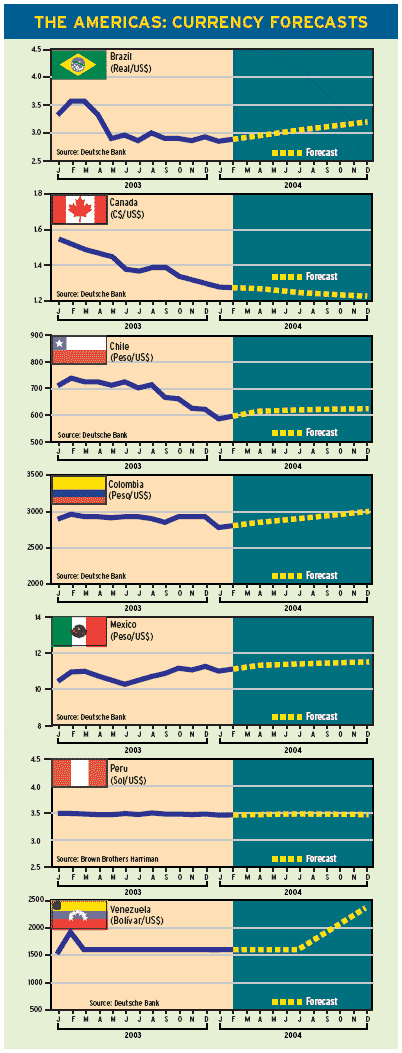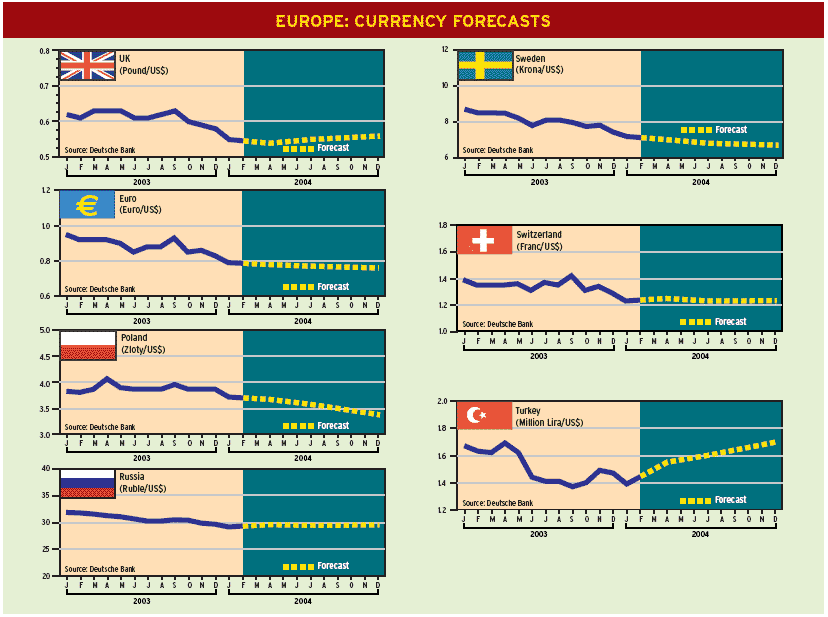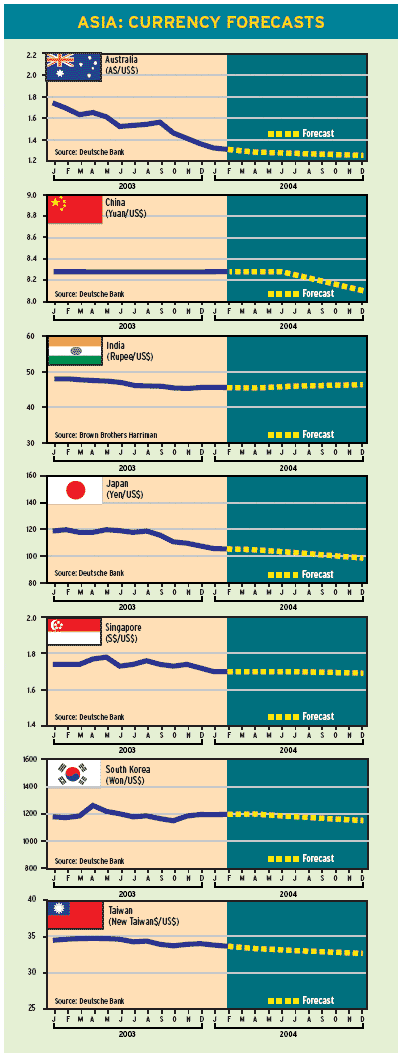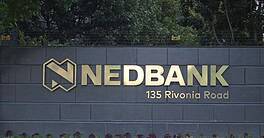THE AMERICAS

Despite expectations of strong US economic growth throughout 2004, analysts are nearly uniformly bearish on the dollar, which dropped to record lows against the euro in January.
The economy will be strong enough to keep the trade deficit wide, but not strong enough to move the Federal Reserve off the sidelines for the foreseeable future, says Lara Rhame, senior currency economist at Brown Brothers Harriman in New York.
This means that neither growth differentials nor interest rates will be supportive of the dollar anytime soon, Rhame says.And that means that dollar-negative capital flows are likely to dominate in 2004.
The slide in the dollar has been driven by a net outflow of money from the US over the past two years, as private-sector foreign investment into US Treasury and agency securities has largely dried up with US interest rates at 45-year lows, says Michael Woolfolk, senior currency strategist at Bank of New York.
The question now is not if the dollar will continue falling, but how far it will fall and at what pace,Woolfolk says.
To determine what the Group of 7 industrial nations considers to be an orderly decline, he examined annual changes in all G-7 currency pairs since 1980. In no instance did a G-7 currency devalue more than 30% against another G-7 currency in any year.
More importantly, there were only two instances in which a 20% devaluation was recorded outside of the dollars coordinated devaluation following the Plaza Accord of 1985. They were the devaluation of the Italian lira in 1992 and of the euro against the Japanese yen following the launch of the single currency in 1999,Woolfolk says.
In light of this, it appears that the maximum speed limit for the devaluation of a G-7 currency is 20% a year, he says.
A 20% devaluation of the dollar in 2004 would result in a year-end rate for the euro of $1.58. If the G-7 were to refuse to provide policy guidance this year on the manner of the dollars decline, another 20% fall might not be as ridiculous as it sounds,Woolfolk says.
Look for the dollars decline to gather pace in February when it becomes clear that the G- 7 is far from responding to the slide in the dollar against the euro, says David Gilmore, partner and economist at Essex, Connecticut-based For- eign Exchange Analytics.
With the US policy mix steadfastly accommodative, it is the dollar that must fall and fall far to drive adjustment, Gilmore says.
We see one outcome for the dollar in 2004: lower by another 20% to 30%, he says.
EUROPE Rising Euro Begins To Inflict Pain
European Union trade commissioner Pascal Lamy said in early January that the euro was getting close to a level where it might damage European export competitiveness.
While comments from European officials are not yet uniform in concern about the euros rise, the level of concern does seem to be rising in tandem with the euros appreciation, says Marc Chandler, chief currency strategist at HSBC Bank USA in New York.


There is some talk that the European central bank could cut rates, Chandler says.For the most part, however, the level of concern in official circles seems to be greater among the politicians than the central bankers.
How policymakers feel about exchange rates will be a function of several factors, including economic growth and inflation trends, says Rebecca Patterson, currency analyst at JPMorgan Chase.
In general, improving global growth is offsetting the pain that stronger currencies tend to inflict on exporters, she says.
We believe that a level of $1.40 for the euro by next fall will keep the ECB sidelined but prompt no specific action against the currency, Patterson says.
Meanwhile, the ECB can use its strong, stable euro policy as a way to pressure local corporations to reform and not rely unduly on foreign exchange rates to be competitive, she says.
We are concerned, and we are certainly not indifferent, ECB president Jean- Claude Trichet said of the weak dollar after a meeting in January of central bankers from the Group of 10 leading industrial nations in Basel, Switzerland.
There was a mention by Europe [at the meeting] that excessive volatility and brutal moves were not welcome and not appropriate, he said.
ASIA Low-Wage Nations Face G-7 Lashing
Weakness in the US labor market in this presidential election year and the Group of 7s demand for currency flexibility are turning up the heat on lowwage countries in Asia.
However misguided the view that China is responsible for US job losses, and that an adjustment of the yuan would fix the problem, its a view thats beginning to resonate politically, says Joshua N. Feinman, chief economist at Deutsche Asset Management in New York.
Keeping these protectionist pressures at bay, which is in the interest of China and the rest of the world, might warrant an early adjustment of Chinas currency peg, Feinman says.
Chinas fragile banking system would likely be destabilized if capital controls were suddenly lifted and if the yuan were allowed to float, he says.A revaluation of the yuan to a higher peg might be a more prudent measure at this stage, he adds.
The recent appreciation of both the Japanese yen and the euro against the dollar should allow US companies to win more business in China in 2004, says Stephen S. Poloz, chief economist at Export Development Canada.
Nevertheless,more than half of Chinas imports are by multinational companies that have established global supply chains, with China producing only part of the final product, Poloz says.Much of this trade takes place within the same company and therefore would be unlikely to shift direction unless there was a very large and lasting exchange-rate shock that made the supply chain unprofitable, he says.
Gordon Platt



